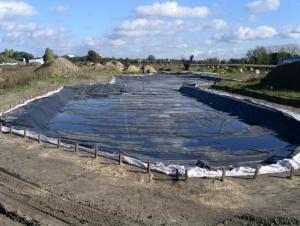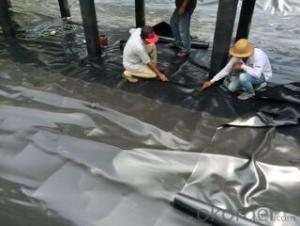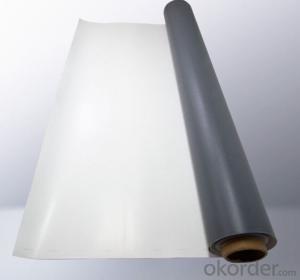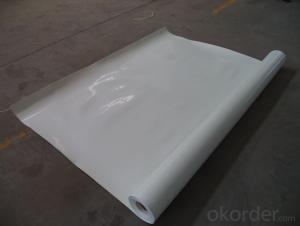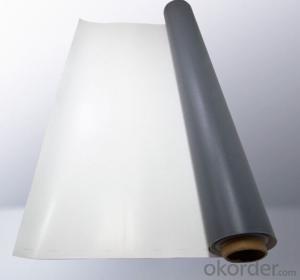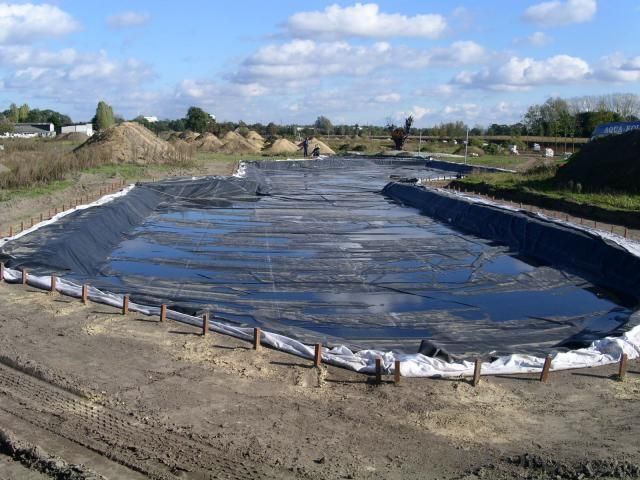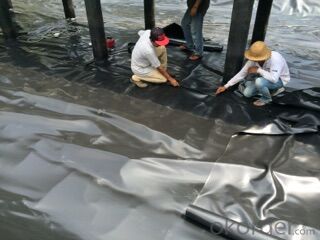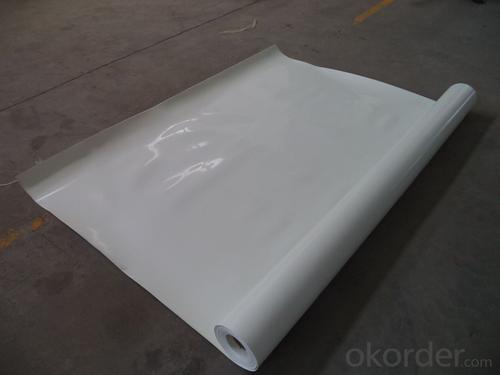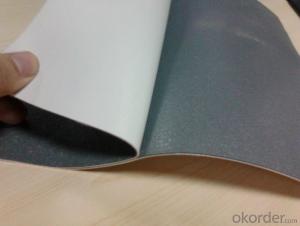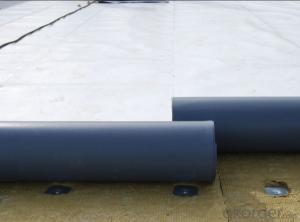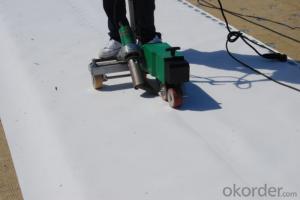TPO Waterproof Membrane Manufacturer for 1.2mm 1.5mm 2mm
- Loading Port:
- Qingdao
- Payment Terms:
- TT or LC
- Min Order Qty:
- 1000 m²
- Supply Capability:
- 100000 m²/month
OKorder Service Pledge
OKorder Financial Service
You Might Also Like
1. Introduction for TPO Waterproof Membrane
TPO (Thermoplastic Polyolefin) waterproof membrane is typically based on polypropylene and EP (ethylene-propylene) rubber. TPO mainly contains carbon atoms and hydrogen atoms and does not contain any plasticizers and chlorine elements. It is a beautiful, long-lived environment-friendly product. TPO membranes are installed mechanically-attached, fully-adhered or ballasted.
2. Features for TPO Waterproof Membrane
It’s easy to install with good system integrity, few accessories.
Excellent tensile strength, tearing resistance and penetration resistance performance..
Hot-air welding. The peel strength of joint is high. Fast welding speed.
Environment friendly, 100% recycled, without chlorine.
Durable hot welding performance and easy to repair.
Smooth surface, no fading and pollution.
Training
The UltraPly TPO Roofing System is exclusively installed by approved roofing contractors that have successfully completed a training program in one of training centers.
Project References TPO
Since the installation of the first UltraPly TPO roofs in the early nineties, hundreds of thousands of square meters of UltraPly TPO membranes have been installed worldwide. The project portfolio includes a selection of major projects.
3. Classification for TPO Waterproof Membrane
H- Homogeneous TPO membrane
L- TPO membrane with fabric backing
P- TPO membrane internally reinforced with fabric
4. Images of TPO Waterproof Membrane:
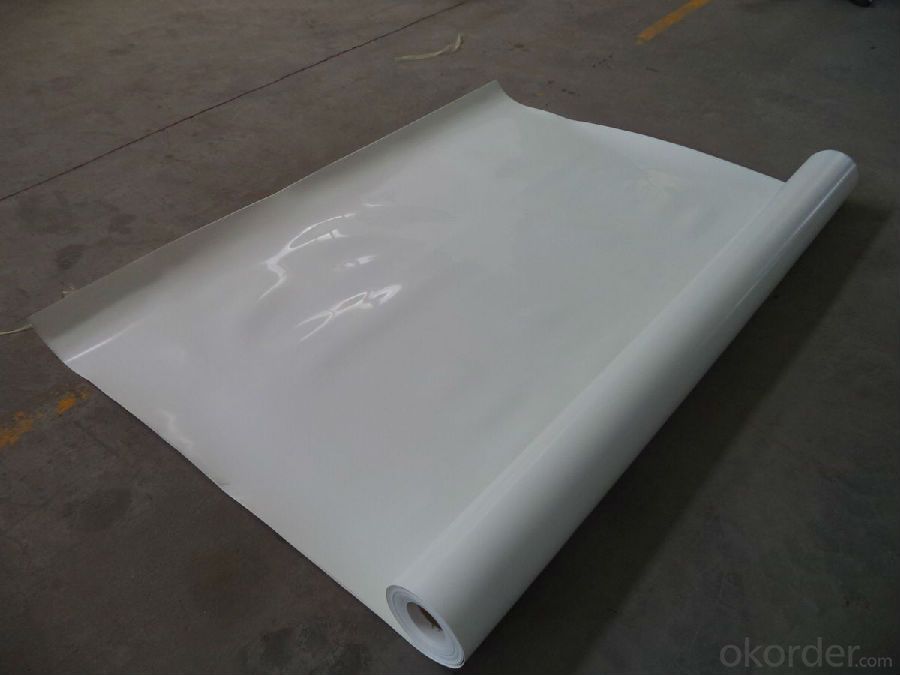
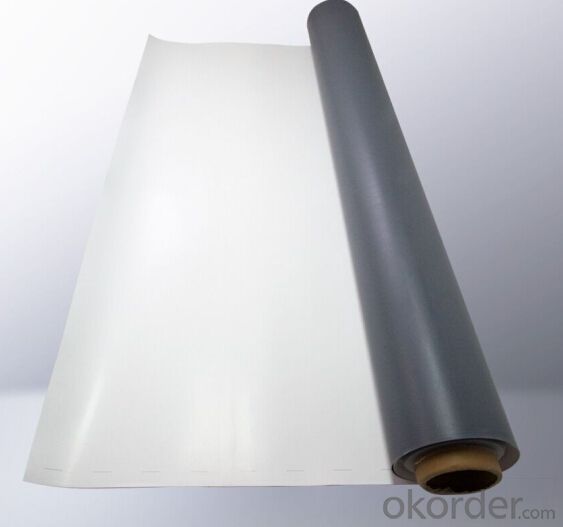
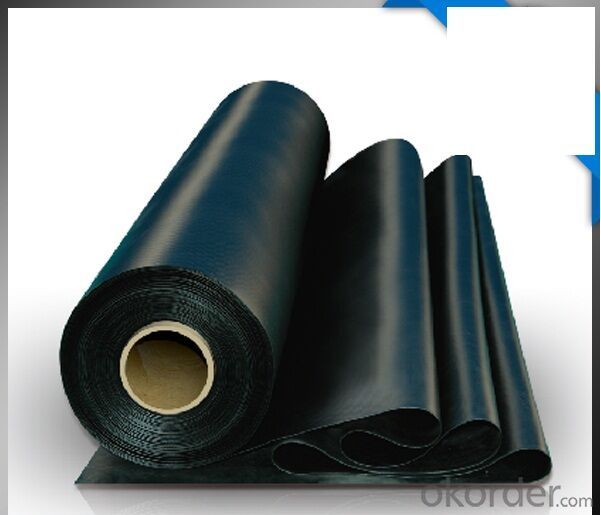
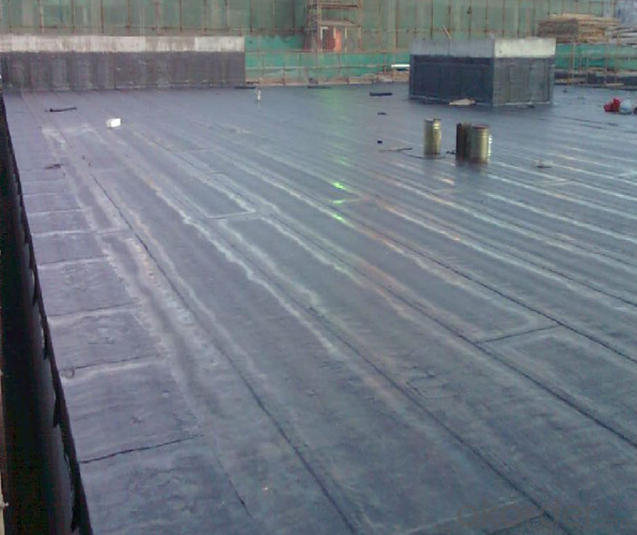
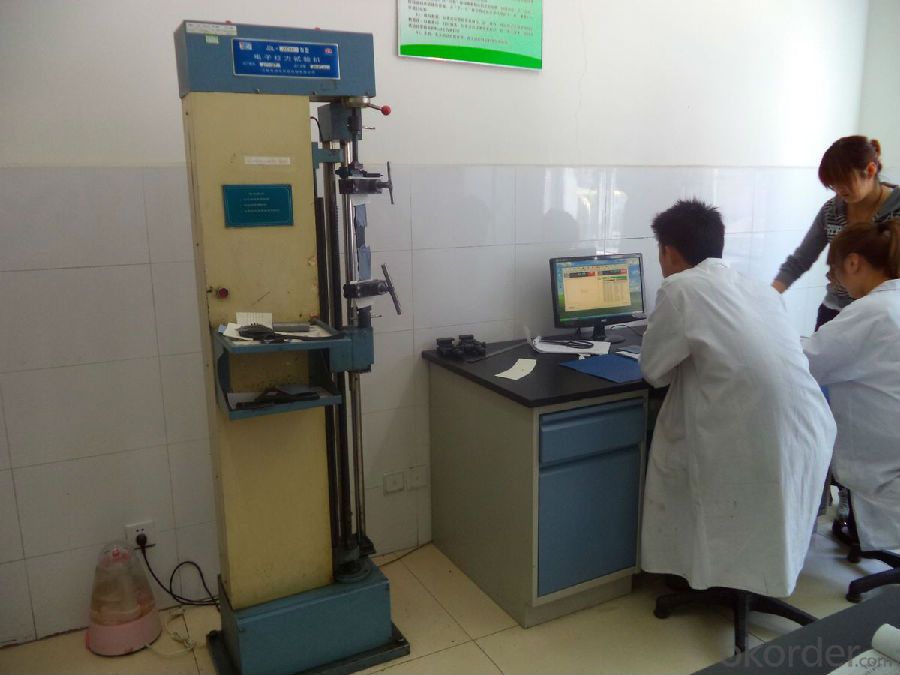
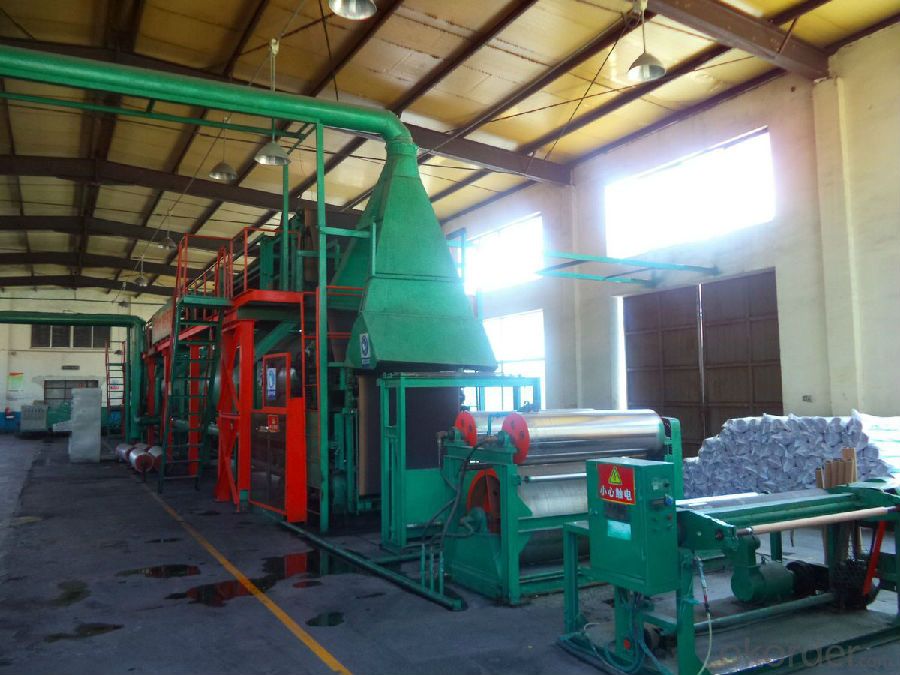
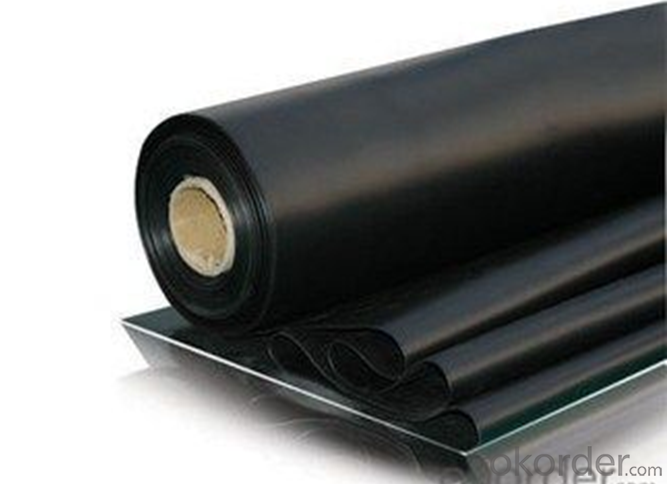
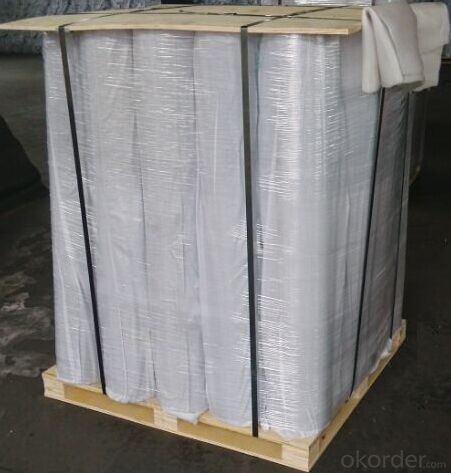
FAQ:
1. What are we supplying?
We are specialized in producing Colorful Asphalt Roof Shingle, SBS/APP modified bitumen waterproof membrane, Self adhesive bitumen waterproof membrane, PVC waterproofing membrane, EPDM rubber roofing membrane, Single Component Polyurethane Waterproof Coating, and Spray Polyurea Waterproof Coating
.
2. How Many years experience do we have?
We have been exported to more than 20 countries in the past 15 years.
3. How long do we usually reply your request?
We always reply our customer within 24 hours.
- Q: Are waterproofing membranes suitable for crawl spaces?
- Yes, waterproofing membranes are suitable for crawl spaces. Crawl spaces are often prone to moisture and water intrusion due to their location and lack of ventilation. Waterproofing membranes provide an effective solution to prevent water damage and moisture-related problems in crawl spaces. These membranes are designed to create a barrier against water and moisture, preventing them from seeping into the crawl space and causing issues such as mold growth, rotting, and structural damage. Additionally, waterproofing membranes can also help to improve indoor air quality by reducing the levels of humidity in the crawl space. Overall, using waterproofing membranes in crawl spaces is highly recommended to ensure a dry, clean, and healthy environment.
- Q: 3MM thick, one square meter waterproof membrane SBS price?
- 4, SBS modified asphalt waterproofing membrane is SBS rubber modified petroleum asphalt cited as the invasion coating, polyester fiber non-woven fabrics, jute cloth, fiberglass mats were made for the fetal base, to plastic film for the defense Sticky isolation layer, by the selection, ingredients, eutectic, invasion, composite molding, curling and other processes processing production.
- Q: Can a waterproofing membrane be used for underground bunkers?
- Yes, a waterproofing membrane can be used for underground bunkers. Waterproofing membranes are designed to create a barrier against moisture, preventing water penetration into structures. This makes them an effective solution for underground bunkers, which are susceptible to water infiltration due to their underground location. By applying a waterproofing membrane to the walls and floor of the bunker, it can help to prevent water seepage and keep the interior dry. This is crucial for the protection of any stored items or occupants within the bunker. Additionally, waterproofing membranes can also provide added benefits such as insulation and protection against radon gas. It is important to ensure that the chosen membrane is specifically designed for underground applications and can withstand the unique conditions and pressures associated with being underground.
- Q: Can a waterproofing membrane be used for fountains or water features?
- Indeed, fountains or water features can make use of a waterproofing membrane. Such membranes find widespread use across various applications, encompassing below-grade waterproofing, roofing systems, and even ponds. Their purpose is to establish a barrier against water infiltration, thereby safeguarding the underlying structure against water-related harm. In the context of fountains or water features, a waterproofing membrane serves to avert leaks and seepage, ensuring that the water remains confined within the intended boundaries. Furthermore, these membranes typically possess flexibility and durability, rendering them well-suited for deployment in areas subject to perpetual water exposure and potential movement.
- Q: Is a waterproofing membrane resistant to hydrochloric acid or other corrosive substances?
- Yes, a waterproofing membrane is generally resistant to hydrochloric acid and other corrosive substances. Waterproofing membranes are designed to provide a protective barrier against water and chemicals, including acids, to prevent damage and ensure long-lasting performance. However, it is always recommended to check the specific product's technical data sheet or consult with the manufacturer to confirm its resistance to specific corrosive substances.
- Q: How does a waterproofing membrane handle water pressure from below?
- A waterproofing membrane handles water pressure from below by creating a barrier that prevents water from seeping through. It is designed to withstand the pressure exerted by water, ensuring that it remains intact and does not allow water to penetrate into the structure it is protecting.
- Q: Can a waterproofing membrane be used on tunnels with security systems?
- Yes, a waterproofing membrane can be used on tunnels with security systems. In fact, it is highly recommended to use a waterproofing membrane in tunnels, especially those with security systems, to protect the infrastructure and valuable equipment from water damage. Waterproofing membranes are designed to prevent water infiltration, providing a protective barrier against water leakage and potential moisture-related issues such as corrosion, mold growth, and structural deterioration. By using a waterproofing membrane in tunnels with security systems, the integrity of the tunnel structure and the functionality of the security systems can be preserved, ensuring the safety and security of the facility.
- Q: How to choose waterproof membrane
- First, pay attention to product name and packaging logo According to the product standard, the product packaging should indicate the name of the enterprise, product mark, production date or batch number, production license number, storage and transportation precautions, for the product mark should be strictly in accordance with the standard, consistent with the product name, Incomplete or unmarked. Users in the choice of these products, we must pay attention to product mark, recognize the product name, because the mark represents the identity of the product. Example: With polyester-cotton non-woven fabric - mesh cloth composite tire production of the coil, can only be named asphalt composite tire flexible waterproof membrane or composite tire coil, and can not name SBS coil, its product mark Can only be marked by compound tires.
- Q: Are waterproofing membranes flexible?
- Yes, waterproofing membranes are typically flexible. They are designed to be able to expand and contract with the building materials they are applied to, ensuring a tight and secure seal to prevent water penetration.
- Q: How to use self-adhesive waterproofing membrane?
- 4) shop self-adhesive waterproofing membrane: the self-adhesive waterproofing membrane tile in the cement waterproof mortar. The web is parallel to the adjacent web, and the joints should be made as far as possible. (When the lap mode is used, the upper surface of the lower layer is separated from the upper surface of the membrane and the upper surface of the upper membrane is removed and then overlapped. 5) beat the surface of the membrane, mention pulp: with a wooden trowel or rubber plate tapping the surface of the coil, mention pulp, discharge the membrane under the surface of the air, so that the membrane and cement mortar close fit. 6) to put on: dry for 24 hours to 48 hours (depending on the specific time depending on the ambient temperature, under normal circumstances, the higher the temperature the shorter the time required).
Send your message to us
TPO Waterproof Membrane Manufacturer for 1.2mm 1.5mm 2mm
- Loading Port:
- Qingdao
- Payment Terms:
- TT or LC
- Min Order Qty:
- 1000 m²
- Supply Capability:
- 100000 m²/month
OKorder Service Pledge
OKorder Financial Service
Similar products
Hot products
Hot Searches
Related keywords
